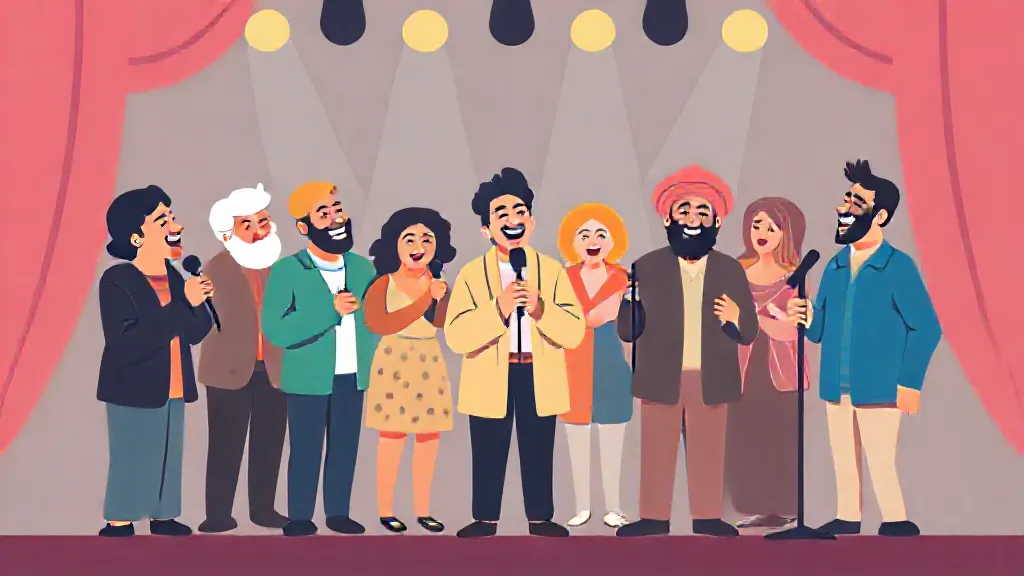Comedy is a universal language that transcends borders, cultures, and generations. What makes certain comedic elements timeless and relevant across various societies? This question delves into the intricacies of humor, examining the cultural, psychological, and historical factors that contribute to its enduring appeal. By understanding these elements, we can appreciate why some jokes, comedic styles, and performances resonate with audiences worldwide, regardless of their cultural backgrounds.
Cultural Context and Shared Experiences
At the heart of comedy lies the concept of shared experiences. Humor often arises from common situations that people encounter in their daily lives. For instance, observational comedy, which highlights the absurdities of everyday life, is a genre that can be appreciated by diverse audiences.
Comedians like Jerry Seinfeld and Ellen DeGeneres have built their careers on the relatability of their material. This relatability fosters a sense of connection among audience members, creating a communal laugh that transcends cultural boundaries.
The Role of Timing and Delivery
Timing is a crucial element in comedy that can make or break a joke.
The way a comedian delivers a punchline can significantly influence its reception. Mastery of timing involves understanding rhythm, pacing, and the buildup of tension before the release of humor. Comedians like Robin Williams and Richard Pryor exemplified this skill, using their unique styles to engage audiences.
The nuances of timing may vary across cultures, but the fundamental principle of effective delivery remains consistent, allowing humor to resonate universally.
Satire and Social Commentary
Comedy often serves as a vehicle for social commentary, allowing comedians to address societal issues while entertaining their audiences. Satire, in particular, has a rich history in comedy, from ancient Greek playwrights like Aristophanes to contemporary figures such as John Oliver.
By using humor to critique politics, social norms, and cultural practices, comedians can provoke thought and inspire change. This ability to reflect societal truths through humor is a timeless aspect of comedy that continues to resonate across cultures.
The Universality of Laughter
Laughter is a biological response that transcends cultural differences.
Studies have shown that laughter activates the same areas of the brain across various cultures, suggesting that the experience of finding something funny is a shared human trait. This universality of laughter means that comedic elements that elicit laughter, such as physical comedy or absurdity, can be appreciated by anyone, regardless of their cultural background. Comedians like Charlie Chaplin and Buster Keaton harnessed this principle, using physical humor to connect with audiences worldwide.
The Evolution of Comedy Styles
Throughout history, comedy has evolved, reflecting changes in society and culture. From the slapstick of the silent film era to the witty repartee of modern sitcoms, comedic styles have adapted to the tastes and sensibilities of different audiences. The rise of global media has further facilitated the exchange of comedic styles, allowing comedians to draw inspiration from various cultures.
This blending of comedic traditions creates a rich tapestry of humor that remains relevant and engaging across generations.
Character Archetypes and Relatable Personas
Character archetypes play a significant role in the timelessness of comedy. Certain personas, such as the fool, the cynical observer, or the lovable loser, resonate with audiences across cultures.
These archetypes tap into universal human experiences, making them relatable regardless of cultural context. Comedians like Lucille Ball and Jim Carrey have effectively utilized these archetypes to create memorable characters that evoke laughter and empathy, showcasing the enduring appeal of relatable personas in comedy.
The Impact of Technology on Comedy
In the digital age, technology has transformed how we consume and share comedy.
Social media platforms and streaming services have made it easier for comedians to reach global audiences. Viral videos, memes, and stand-up specials can cross cultural boundaries in an instant, allowing humor to spread rapidly. This accessibility has led to a democratization of comedy, where diverse voices and styles can be appreciated worldwide.
The impact of technology on comedy has created a dynamic landscape that continually evolves while retaining the core elements that make humor timeless.
Conclusion: The Enduring Nature of Comedy
In conclusion, the timelessness of comedy across cultures lies in its ability to connect people through shared experiences, relatable characters, and the universal language of laughter. As comedy continues to evolve, its core elements remain rooted in the human experience, ensuring its relevance for generations to come.
By understanding the factors that contribute to the enduring nature of humor, we can appreciate the diverse comedic expressions that enrich our global culture and bring us together in laughter.
